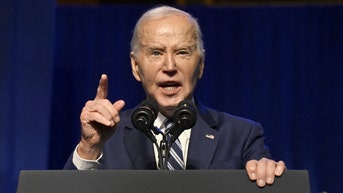Proposal cuts tax on most home sales, generates funds to help homeless
/cdn.vox-cdn.com/uploads/chorus_asset/file/19987033/Chicago_flag_City_Hall_2.jpg)
Mayor Brandon Johnson has signed off on a compromise plan to raise the real estate transfer tax on high-end home sales to generate $100 million in annual revenue to combat homelessness, but in a way that will reduce the tax for homes sold for less than $1 million.
Zoning Committee Chair Carlos Ramirez-Rosa (35th), the mayor’s City Council floor leader, flatly predicted that the 11th-hour concessions would minimize opposition from Chicago developers and guarantee City Council approval of a binding referendum on the March ballot. He also predicted overwhelming voter approval.
“Chicago voters are supportive of progressive revenue structures, particularly when they know where the funding is going to go,” he said.
“People who are purchasing homes for the first time are likely spending less than $1 million and they will now see a decrease. So effectively, we’re asking the average Chicagoan, ‘Do you want to pay less in real estate transfer taxes?’ I think voters will overwhelmingly say ‘yes.’”
The original proposal from the Bring Chicago Home Coalition called for tripling the transfer tax on Chicago homes sold for more than $1 million — from 0.75% to 2.65% — generating $160 million in annual revenue.
Instead, Johnson signed off on what his floor leader called a “three-tiered progressive structure.”
• Properties sold for under $1 million that currently account for 94 percent of all sales, will see a decrease in the real estate transaction tax owed. The new tax rate would be 0.60%, down from the current rate of 0.75% — a 20% cut.
• Sales over $1 million but under $1.5 million will pay a 2% tax — more than two-and-a-half times what they pay now.
• And sales exceeding the $1.5 million benchmark will pay 3%, which is four times the current rate.
Affordable housing projects receiving city, county, state or Chicago Housing Authority subsidies would be exempt from the increase.
The changes were made to minimize opposition from Council members who believed $1 million was too low a benchmark for such a steep increase, Ramirez-Rosa said.
The concessions are further aimed at minimizing the impact on the sale of three-to-six-flat buildings, a critical component of Chicago’s inventory of multi-family apartments.
The changes, expected to reduce the amount of additional annual revenue from $160 million to roughly $100 million, were being outlined to alderpersons during closed-door briefings Tuesday.
Night Ministr senior nurse practitioner Stephan Koruba visits an encampment at Kedzie and Belmont avenues in 2022.
If all goes well, the binding referendum will be introduced at the Sept. 13 Council meeting and approved by the Council in October.
If a simple majority of Chicago voters then approve the binding ballot referendum in March, the Council will be asked to approve another ordinance enacting the new tax structure and establishing a special fund dedicated to address homelessness.
Specific allocations of revenue from the fund will be determined annually and approved by the Council.
Ramirez-Rosa noted a home sold for $500,000 would pay $3,000 under the new structure, down from $3,750 under the current rate.
“This is the progressive way to do it. This is the smart way to do it. This is the strongest proposal that addresses a lot of different concerns. It ensures that we are not harming those three-to-six-flat apartment buildings. And we are cutting the real estate transfer tax for the vast majority of home buyers in the city of Chicago,” Ramirez-Rosa said.
Former Mayor Lori Lightfoot campaigned on a promise to raise the real estate transfer tax on high-end home sales to create a dedicated funding source to combat homelessness, but broke that promise, infuriating what was her progressive base.
Johnson would be avoiding that mistake, as the need for more revenue to combat the burgeoning problem of homelessness in Chicago is pretty much everywhere — over 100 homeless encampments, and counting.
“The number of Chicagoans experiencing homelessness has increased throughout the pandemic and in the past several years. There are so many CPS high school students experiencing homelessness. There’s no question that we need this funding,” Ramirez-Rosa said. “But the mayor always said he was committed to getting this done in a way that is collaborative and a way that addressed legitimate concerns being brought to him.”
Doug Schenkelberg, executive director of the Chicago Coalition for the Homeless, could not be reached for comment. Neither could Farzin Parang, executive director of the Building Owners and Managers Association, a group including owners of large office buildings.
Last week, Parang warned that raising the real estate transfer tax would have a devastating impact on office buildings that may never fully recover from a pandemic that have seen their valuations drop by anywhere from 40% to 80%.
“You’re talking about assets that used to be $300 million and that are, right now, attempting to get some offers at $100 million, if anything. There have been no sales of real office buildings downtown this year. Period,” Parang said last week.
“Our buildings on their busiest days are 60% empty. If you look at our vacancy rates, almost a quarter of office space in the city is unleased, which is the highest it’s been in 75 years. If you look at our sub-lease listings, they’re telling you they’re not gonna renew when the lease expires. The sub-lease listings are the highest they’ve ever been in recorded history in Chicago.”
https://chicago.suntimes.com/city-hall/2023/8/22/23841506/real-estate-transfer-tax-increase-compromise-reached-chicago-city-council-johnson-homelessness Proposal cuts tax on most home sales, generates funds to help homeless



